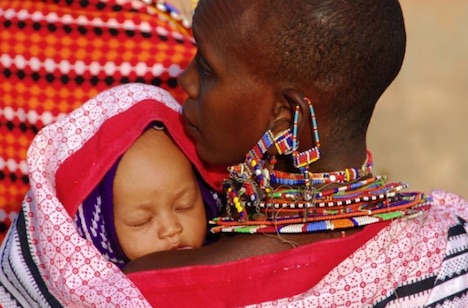Indigenous Women: Respect Our Knowledge And Tradition
 Print This Print This
By Renee Juliene Karunungan, Fair Observer
Popular Resistance
Friday, Feb 5, 2016
 |
| Photo: SHUTTERSTOCK |
Indigenous rights, knowledge and traditions must be respected in the new climate action agreement.
“We had a culture where we preserved wild fruits for when we didn’t have enough food and grains,” says Edna Kaptoyo, a Pokot indigenous woman from Kenya. “My mother did this for our family, but today, these fruits have disappeared.”
“Women also use grass to cover our houses. But it has become more difficult for us to find grass, so when the storms come, we do not have anything to protect our children,” she adds.
Indigenous peoples are known to be stewards of nature. Their traditions and culture are largely dependent on the environment. But threats to their environment such as fossil fuel companies who drill their land and the impact of climate change have resulted in a more difficult life.
According to the International Work Group for Indigenous Affairs, climate change is not simply about the environment where indigenous peoples live. It is a threat to their livelihoods, social life and traditional knowledge and cultures.
If there is one group of indigenous people who experience the impact of melting ice directly, it would be the Inuit. The Inuit people live on sea ice and traverse through sea ice. Global warming is melting glaciers at a fast pace. According to the Natural Resources Defense Council (NRDC), Arctic summers could be ice-free by 2040.
Maatalii Okalik, an Inuit from Canada, shares her experience on the effects of global warming on her people.
“We are a circumpolar people who have inhabited the Arctic for many years,” she says. “We depend on Arctic sea and rights to practice our tradition and thrive on a daily basis. We hunt and harvest traditional food that is healthy for our lifestyle. But today, it has become more difficult to hunt and harvest traditional food.”
According to the Climate Hot Map, the melting of sea ice threatens “indigenous ways of life, some of which have flourished in the Arctic for thousands of years.” Traditional hunting methods, for example, are becoming more risky because of thin ice.
Today, indigenous women demand that their knowledge and traditions are respected in the same way that scientists, researchers and policymakers are.
“Our elders have been saying for many years that these climate change impacts are detrimental for our peoples and people all over the world, but policymakers and researchers do not deem traditional knowledge legitimate,” Matali says. “Maybe if we had listened to our Inuit leaders a long time ago we will already be [a step] forward in how we address climate change.”
Alina Saba, representing the Limbu people of Nepal, shares the same thought, particularly for indigenous women.
“We have double discrimination: first from being a woman, and second from being indigenous,” Saba says. “Our existence as indigenous women [is] threatened, yet here has never been a mechanism to include us in how we tackle climate change. They always come to us and say what we need to do, but it doesn’t suit our traditions and culture.”
“They need to honor our rights and knowledge as an indigenous community. We know how to fix this. Give us space,” she adds.
But while indigenous peoples have traditional knowledge for climate solutions, there are things that have surpassed their knowledge. Capacity building and education would be needed to answer this knowledge gap.
“Traditional knowledge of farming has stopped working. In the past, the practices were in harmony in nature, but this has changed because of climate change,” Saba notes. “Indigenous women do not understand what has happened. Even if we do all we can, it is not enough. It has surpassed the knowledge of indigenous women, and for this we need capacity building and education.”
With human rights, including women’s rights and indigenous people’s rights, currently at risk, indigenous women only have one wish: that their rights, knowledge and traditions will be respected in the new climate action agreement.
Source URL
|
 Print This Print This

|

